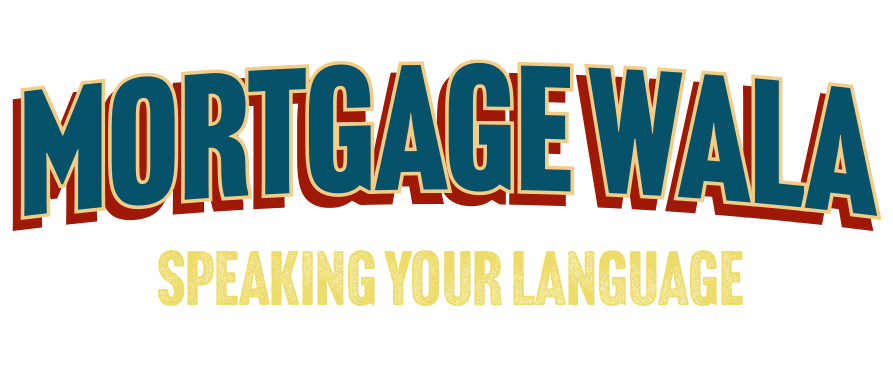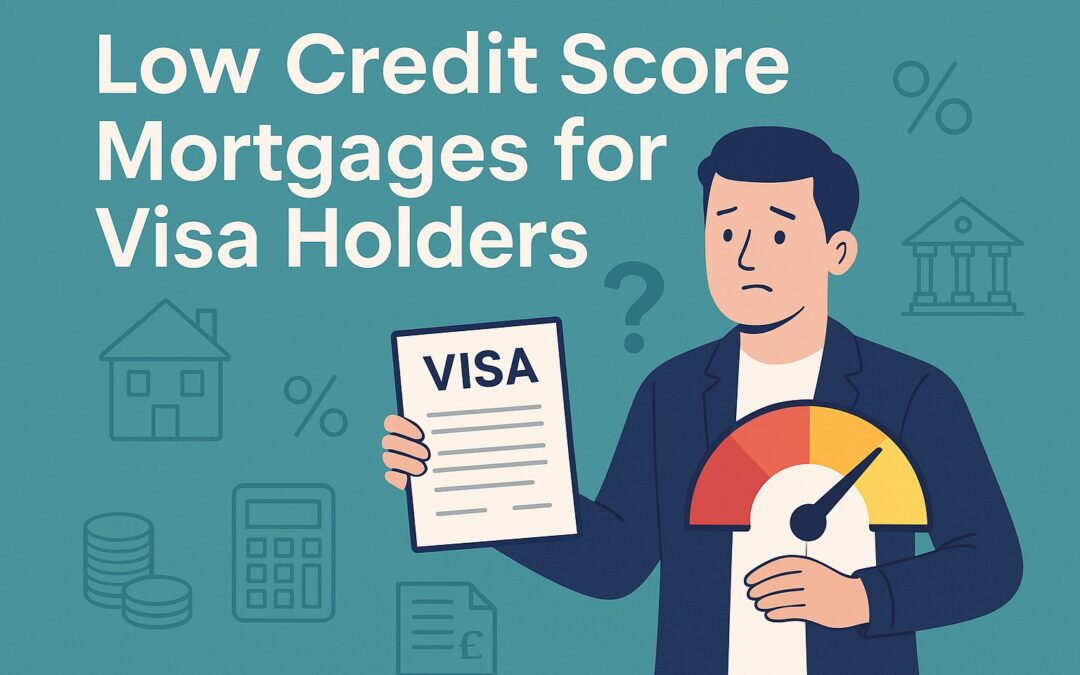Can I get a mortgage if I’m on a visa and have a low credit score?
This is probably one of the questions I get asked the most: “Can I get a mortgage on a visa with a low credit score?” And honestly, I get why people worry about it. Being on a visa can feel complicated enough, and when you add a poor credit score into the mix, it might feel like the chances are slim.
But here’s the truth: it is possible. Some lenders are a lot more flexible than you think. At Mortgage Wala, I spend a lot of time helping people in exactly this position — foreign nationals on visas, sometimes with no credit history or even with defaults, who still want to buy a place.
Why do lenders care about my credit score if I’m on a visa?
Your credit score is basically a shorthand way of showing how you’ve handled borrowing in the past. Lenders like it because it gives them a quick idea of risk. But here’s the important part: it isn’t the only thing that matters.
When I’m putting together a mortgage application for someone on a visa, lenders will also look at:
- What type of visa you hold and how long is left
- Your income and how stable your job is
- How much deposit you’ve saved
- How you manage everyday bills and rent payments
- Your overall affordability, not just the score on paper
So even if you’re typing into Google “mortgage with poor credit on a work visa”, you don’t need to panic — lenders don’t judge you on the number alone.
How much deposit do I need if my credit isn’t great?
Deposits are a big part of the conversation, especially if your credit file isn’t spotless. Here’s what I usually tell clients:
- 5% deposit can work if your credit record is clean and everything else is solid.
- 10% deposit is often the starting point if you’ve got missed payments, defaults or CCJs.
- 25% deposit is standard if you’re looking at a buy-to-let mortgage.
The bigger your deposit, the more relaxed lenders are about your credit. If you’re asking yourself “how much deposit do I need for a mortgage on a visa with bad credit?” — the answer is: as much as you can manage, but we can work with the minimums above.
Do I need to have lived here for a certain amount of time?
Another question I hear all the time: “Do I need to have lived here for years before anyone will consider me?”
The answer? Not always. Some lenders want you to have been here 12 months or more. Others like to see at least six months left on your visa. But — and this is where I come in — there are lenders with no minimum time in the country, and no set amount of time left on your visa.
So if you’ve only recently arrived, it doesn’t automatically mean you can’t get a mortgage. You just need to know which lenders are open to your situation.
Can I get a mortgage if I don’t have any credit history here?
This is super common, especially if you’ve just arrived. I often hear: “I’ve never borrowed money here, so does that mean I can’t get a mortgage?”
The answer is no, it doesn’t stop you. Some lenders will look at other things instead, like:
- Your bank statements, showing income going in and bills being paid
- A rental history proving you pay on time
- Your employment contract — especially if it’s permanent or long term
- Overseas credit evidence, in some cases
So if you’ve been searching for mortgages with no credit history as a visa holder, don’t stress — there are ways forward.
What can I do right now to improve my chances?
If you’re on a visa and worried about poor credit, there are a few easy steps you can take straight away to strengthen your case:
- Open a local bank account and have your salary paid into it.
- Get a credit builder card, use it for small things, and clear it every month.
- Set up direct debits for bills or subscriptions so payments show up regularly.
- Keep your spending sensible and avoid payday loans at all costs.
Doing these things for even 6–12 months can make a big difference when it comes to mortgage approval.
Which lenders will actually consider me?
Here’s the part most people don’t know. Not every bank will help if you’re on a visa with poor credit. Mainstream, high-street lenders usually want borrowers with long credit histories and clean files.
But there are specialist mortgage lenders for visa holders with bad credit. These lenders design products specifically for people like you — whether you’ve just arrived, you’ve had financial hiccups in the past, or you’ve got no UK credit record yet.
Yes, the rates can sometimes be higher, but the trade-off is you get the chance to buy sooner rather than later. And once you’ve built up a track record, you can remortgage onto a better deal later.
How do lenders check affordability if I don’t have a credit file?
Good question. If you’ve got a thin or non-existent credit history, lenders look at other areas to judge affordability. For example:
- Regular income and payslips from your job
- Bank statements showing how you manage money
- A letter from your landlord confirming rent paid on time
- Bills or council tax accounts in your name
Basically, they want to see that you’re reliable, even if the credit agencies haven’t had time to record it yet.
Can I remortgage to a better deal later on?
Yes — and honestly, that’s the goal. Many of my clients start out with a specialist lender because of poor credit or limited history. Then, once they’ve shown stability, they remortgage onto a better deal with a mainstream bank.
If you’re looking at remortgage options for visa holders with bad credit, my advice is:
- Keep your accounts squeaky clean from now on
- Don’t miss payments, even small ones
- Save or reduce your mortgage balance to increase equity
- Stay in stable employment
- Start planning your remortgage about six months before your current deal ends
That way, you set yourself up for stronger choices next time around.
Real story: what happened when one visa holder had no credit history
I worked with a client who’d only been here nine months. They were on a Skilled Worker visa, had a solid engineering job, a 10% deposit, and great overseas credit — but nothing locally.
High-street banks turned them away. But we went to a specialist lender who accepted their employment evidence, bank statements, and rental record. They got a two-year fixed mortgage, which gave them time to build a local credit profile. Their plan now is to switch to a mainstream lender at remortgage for a cheaper deal.
So, what should you do if you’re a visa holder with bad credit?
If you’re on a visa and your credit isn’t perfect, don’t assume it’s impossible. Whether you’re looking at a 5% deposit mortgage for visa holders, a 10% deposit mortgage with bad credit, or a buy-to-let mortgage with 25% deposit, there are lenders out there.
The key things are:
- Save the biggest deposit you can
- Build up your credit profile, even with small steps
- Use evidence like payslips and rental history to back up your case
- Get advice from someone who knows which lenders are open to visa holders
That’s exactly what I do here at Mortgage Wala — honest advice, no judgement, and a clear plan to help you get approved.
📞 Honest, clear advice without judgement
🗓️ Book your free consultation today and take the next step
As a mortgage is secured against your home, it could be repossessed if you do not keep up the mortgage repayments.

